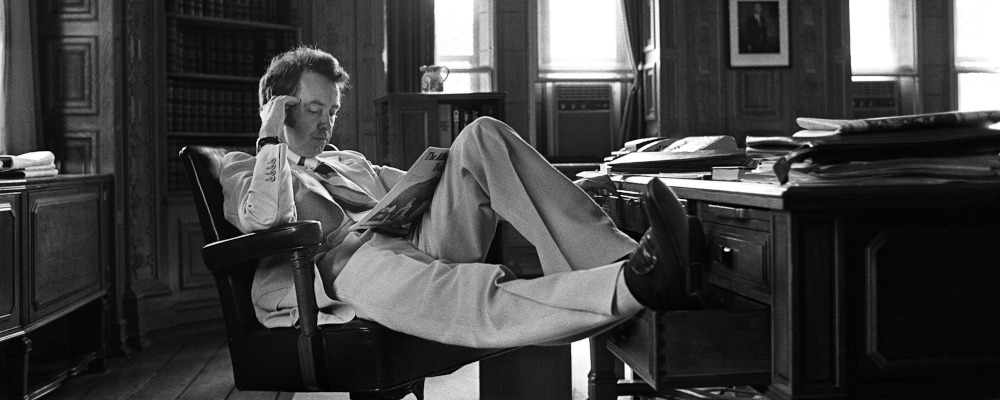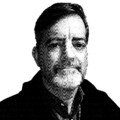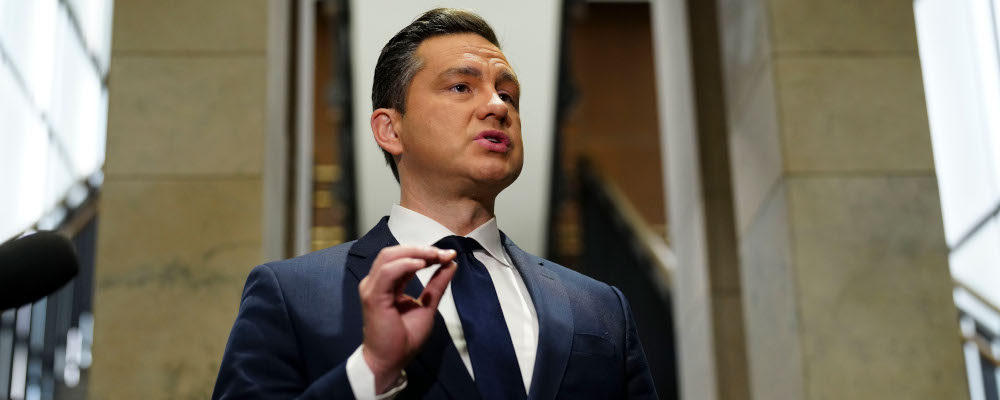The Hub is pleased to present a weekly column from author and historian Antony Anderson on the week that was in Canadian history.
February 25, 1976: Joe Clark makes his debut in the House of Commons as Leader of the Opposition
The blood barely dried, wounds still open, swarms of opponents made a display of public cheer and unity in their Parliament—here I refer to Conservative MPs who had just endured a fierce contest to choose their new leader. Emerging victorious was the member for the Alberta riding of Rocky Mountain, at 36 the youngest ever leader of the Opposition, Joe Clark. An MP for just the last four years, he seemed like an everyman—dependable, decent, free of charisma, outwardly modest—but of course he had to be exceptional to have made it this far.
Rising to speak, Prime Minister Pierre Trudeau welcomed Clark with a grace and goodwill that seems almost naïve in our toxic day and age: “I know that we will have more than one political battle one against the other, but I comfort myself with the feeling that we are both aiming at the same good, the Canadian commonweal, and of this I think everyone is assured.” Perhaps not everyone sitting on the Tory benches was so assured.

The devoutly Liberal, regionally myopic Toronto Star had slapped a snarky headline on its front page: “JOE WHO?” But inside the pages, one of its most astute columnists, the very Tory Dalton Camp, judged that the new Conservative leader, twenty years younger than the PM, made Trudeau appear “a little shopworn.” Clark, whom Camp had met years before when they worked to unseat a deeply toxic John Diefenbaker, could challenge Trudeau “with at least as much political experience and savvy as his own. Furthermore, this younger man is just as quick and adroit.”
The neophyte leader was not a household name, but Clark had spent years in what is generally disparaged as the “backrooms” where overworked, true believers keep essential democratic wheels turning. At the University of Alberta, the keener had studied political science in theory. More importantly, he learned the true hand-to-hand art of political practice by volunteering and then working for the provincial and federal Tories, in and out of power, until he became a speechwriter and assistant to his gentlemanly predecessor, Robert Stanfield, the best PM we never had, as various quipsters would have it. Stanfield had left his perch as premier of all Nova Scotia to face two Liberal leaders, Lester Pearson and Pierre Trudeau, going down to defeat in 1968, 1972, and 1974 before deciding he had had enough—hence Clark’s opening.
By temperament and circumstance, Clark was the embodiment of that now-extinct species, the Red Tory, perfectly balancing the progressive and the conservative impulses within his party and the country. In an era when bilingualism might be seen as a devious central Canadian conspiracy, Clark’s mother had taught French to young Albertans, so the idea of speaking it was not an alien concept for him. His parents were politically active on opposite sides of the barricades, father Conservative, mother Liberal, so he grasped that opponents could still respect and even marry each other.
His father and grandfather had published one of the region’s oldest weekly newspapers and Clark had worked summer jobs at the Calgary Herald and Edmonton Journal, so he lacked any knee-jerk loathing for journalists and journalism. Unlike most of his party and indeed the majority of Canadians, he did not support capital punishment. Perhaps most daringly of all, his wife, Maureen McTeer, had kept her own name and fully intended to finish her law degree. This smacked of open feminism!
Clark entered the leadership race well behind fellow MP Claude Wagner, a former Quebec judge and provincial Liberal minister of justice (this heresy more readily forgiven when jumping languages and levels of government)—very much a conservative’s Conservative, the stand-out choice for the party’s right-wing. He was also seen as a potential antidote to the seemingly insurmountable sprawl of Liberal support in Quebec. Closer behind was Montreal lawyer, Brian Mulroney: flawlessly bilingual, supremely connected, a formidable backroom power player. Another contender was Kingston MP, Flora MacDonald, who had garnered enough declarations of support to conjure up visions in the party and the press of her becoming Canada’s first female PM. Other candidates with no chance at all joined the fray, not to win but to stake out future claims. Clark was on no one’s list of winners, except his own.
Braving a Canadian February and great distances, 2,300 delegates gathered at the Ottawa Civic Centre to cast their votes for eleven candidates. This was rowdy, sweaty, unscripted democracy captured in the wild on live television. As expected, Wagner led on the first ballot pulling in 531 votes followed by Mulroney with a respectable 357. Then came the curve ball. At third place, seemingly out of nowhere, stood the member for Rocky Mountain with a very credible 277 votes. Despite all the promises, Flora Macdonald was done before she started, limping into fifth place.
A stage had been set but nothing was locked in. Each ballot took some two hours to conduct so there was time for delegates and contenders to agonise, assess the damage and prospects, and scramble accordingly. The bottom three candidates declared themselves for Clark. The next ballot result was a stunner. Wagner remained in first place at 667 votes, but slow and steady Clark catapulted into second place, doubling his count to 532. Mulroney dropped to third place, the role of potential kingmaker, but he declared he was staying on for the next round. Once again, candidates nursed shattered delusions of grandeur and delegates made their calculations. Macdonald and another red-tilting candidate withdrew to endorse Clark.
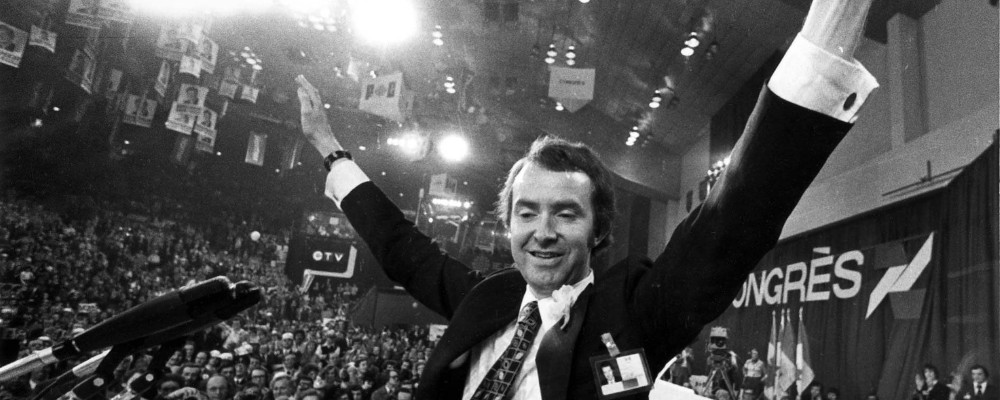
The third ballot must have triggered a few ulcers. Wagner barely scraped ahead with 1003 votes, with Clark sprinting right behind with 969 votes. Here Mulroney finally dropped out and declined to endorse either candidate. He would bide his time. Now it came down to a clear battle between the Right and Left wings of the right-of-centre party. On the fourth ballot, a mere 65 delegates decided the temporary fate of the two gladiators still standing. 1,122 voted for Wagner. 1,187 voted for Clark. This was one of the greatest upsets ever seen at a Canadian convention. Clark was the nice guy who had defied the odds, the skeptics, and the tides and finished first. It helped that he had a core of steel.
The new leader knew he had deep breaches to heal. He urged tired delegates and bitter egos to “suspend the empty arguments of Left and Right. We are one broad party. And I am in the centre of it—with the great majority of you.” But as is often the case in such a tribal enterprise, Clark would have to keep closer watch over his shoulder at his own colleagues than at his more obvious opponents across the aisle of the House of Commons.
Three years later, Clark won a minority government, which was toppled in a vote of confidence a few months afterward, and then lost the February 1980 election. For such failures, the party faithful unceremoniously dumped him at the 1983 leadership convention for the flashy guy from Montreal who had always looked like a winner. True to himself, Clark played the long game, persisted, and prevailed to become one of the longest-serving and most effective foreign ministers Canada has ever had—the exceptional everyman.
Recommended for You
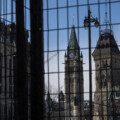
The Weekly Wrap: It’s time to cut through Chesterton’s Fence and implement sweeping reform in Canada
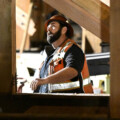
Has the Left lost its masculine energy?
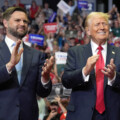
The Week in Polling: Young Canadians delay milestones due to high costs, Liberals lose the youth vote, and most Canadians fear a Trump-Vance White House

Ginny Roth: J.D. Vance, Pierre Poilievre, and how they slice their economic pie

